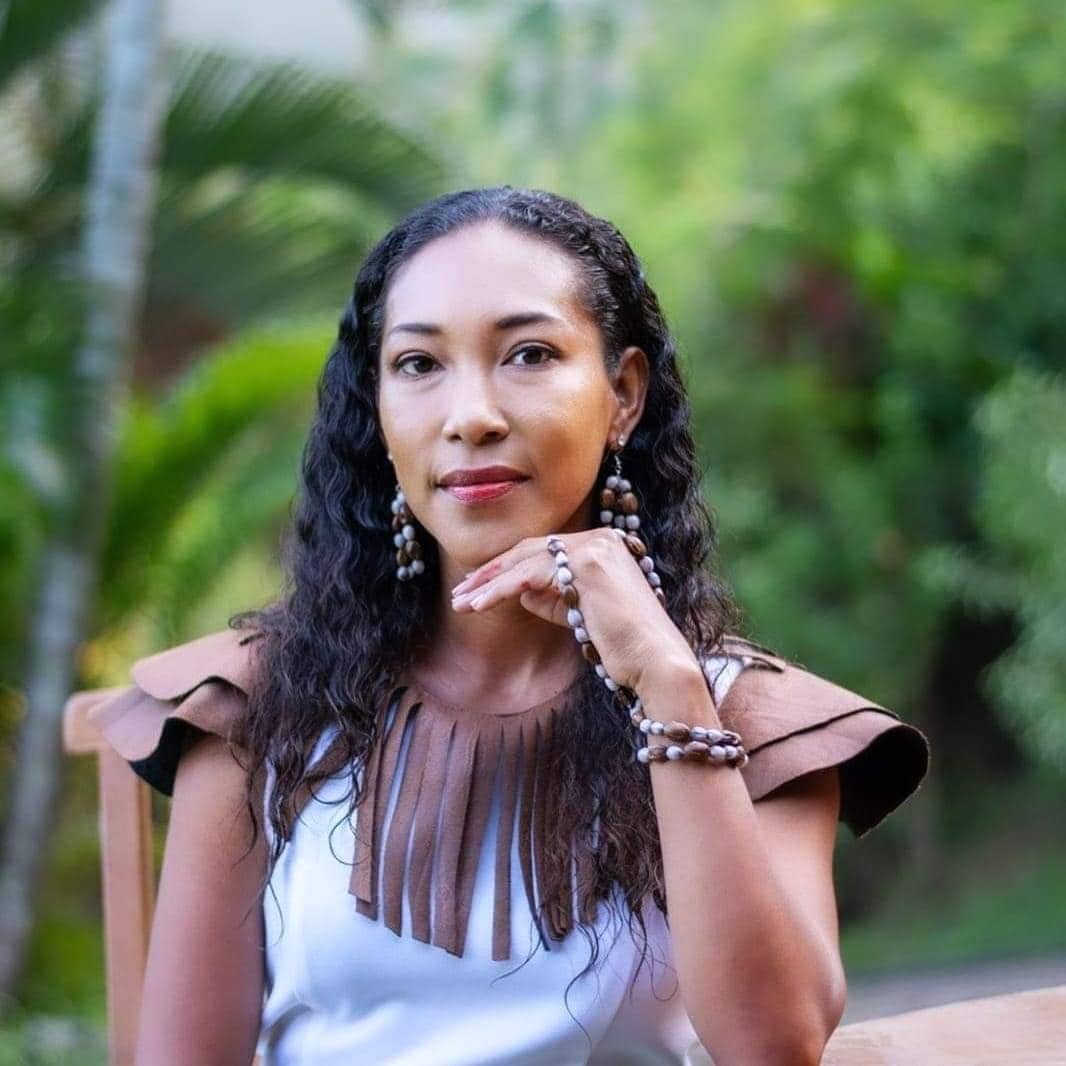
CMC-Anette Sanford put aside the disappointment of not becoming Dominica’s first head of state when she swept to victory Monday night in the Kalinago election, becoming the first woman to be elected a Chief for the Territory.
Last October, Sanford, 41, a former opposition United Workers Party (UWP) legislator, had been named by former opposition leader, Jesma Paul Victor, as the opposition nominee to replace the then outgoing president Charles Savarin that year.
Sanford, like the government nominee, 58-year-old Sylvanie Burton, is from the Kaliangoo Territory, where the descendants of the country’s indigenous people, the Caribs, still resides.
According to the preliminary results released here on Monday night, Sanford polled 693 votes with her closest rival, Natash Zandra Green, receiving 272.
Among those defeated was Casius Darroux, a former parliamentary representative for the Kalinago Territory, who received 162 votes, The other defeated candidates are Kenrick Dana Auguiste, St Cyr (10 votes), Veronica Ideline Burto (32 votes), Wilbert Devon Cuffy (three votes) and Jumadine Faustinus Frederick (nine votes).
Speaking after she was declared the winner, Sanford, a registered nurse, called for unity among all sectors of the Territory.
“I am indeed humble (and) during my campaign I said this time I am not going to lose by three votes, but we are going to win by 300 votes and we did it,” she said, adding “I will not disappoint you.
“I promise you I am going to work and I will keep my word. Let us work together. Now is the time to join hands and our hearts and put the Kalinago Territory first. We need to set aside our political differences and focus on developing our community,” Sanford said, adding “as your leader I am going to support you and help us to accomplish just that.

“So I am looking forward for a brighter future for the Kalinago Territory and I am going to do it with your support,” she told cheering supporters.
The Kalinago Territory, home to the Kalinago, the descendants of the island’s original people, the Kalinago, originally known as the Caribs.
The Kalinago are believed to have originally come from South America and represent the last remaining tribe of the pre-Columbian Carib Indians, going back to about 3000 B.C.
Their lives changed with the arrival of Christopher Columbus and the subsequent arrival of European settlers, with whom the Kalinago battled bitterly to keep their lives and lands.
Eventually, they had to flee to the isolated eastern side of Dominica, taking with them rites, rituals, and a way of life that reached back to the island’s original settlers. It wasn’t until 1763, when the British gained full control of Dominica, that the Kalinago were officially given 232 acres of land, originally dubbed the Carib Reserve. Their territory was expanded to 3,700 acres in 1903.
The “Carib Act of 1978 clearly outlines the powers of the Chief and the duration of his/her term as Chief, which is five years in the first instance. After serving a term, the individual can contest the Election for Chief as often as they wish.
The last Election was held in July 2019, when Lorenzo Sanford was elected.
While men were the main candidates in the elections, a shift began during the last election in 2019 when for the first time a woman contested the election and Sanford only lost by three votes.
Advertise with the mоѕt vіѕіtеd nеwѕ ѕіtе іn Antigua!
We offer fully customizable and flexible digital marketing packages.
Contact us at [email protected]
















Congratulations to our first female Kalinago Chief.
DUKE AND DUCHESS – CHIEF v CHIEFTESS….? FINE SPECIMEN OF A WOMAN
In Royalty, there is ‘…Duke’ (male), as much as there is ‘…Duchess’ (Female).
In ‘…Kalinago,’ this apparent ‘…Fine Specimen of a Woman,’ could never be considered a ‘…Male Gender,’ as to be called a ‘…CHIEF.’
The fact of her ‘…Gender’ and elected position, qualifies ‘HER’ as ‘…CHIEFTESS.’
Congratulations ‘…Chieftess, Annette Sanford.’
Comments are closed.